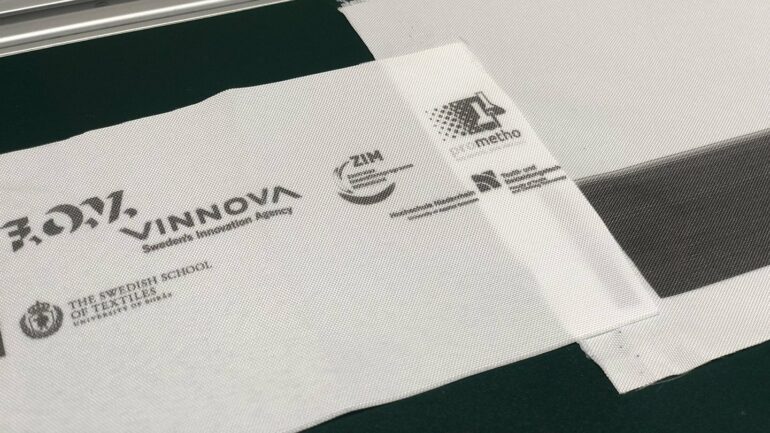A new process for digital printing on textiles, developed within a research project at the University of Borås, can now be an important part of the solution for the textile industry to deal with the enormous consumption of water and emissions of hazardous substances, for which the industry is responsible.
Together with various industrial partners, the researchers in the project have optimized the printing technology and process so that it is now ready to be used on an industrial scale by developing a new adapted formula of paint and ink that works in the print heads and protocols used in industry.
In the project “SusdigiTex—Development of a digital printing process with sustainable inks for functional clothing” the Textile Materials Technology research group at the Swedish School of Textiles has developed and tested a pigment ink and optimized it for single-color prints and patterns. They have mixed and tested water-repellent inks by using components that are free of environmentally hazardous fluorocarbons, which are used as impregnating agents, but which must be phased out.
“With this technology, it is possible to get the material exactly where you want it, which makes it possible to save raw materials and reduce the handling of chemicals that remain after production. This project sets the bar for the implementation of sustainable digital printing techniques in textile dyeing, finishing and functionalization,” said Junchun Yu, Senior Lecturer and member of the research team.
FOV fabrics AB has for many years had several research collaborations with the university regarding digital printing technology. Fredrik Johansson, business developer, explained that “collaboration with the university has contributed to our investing in digital printing technology based on several research projects over ten years with funding mainly from the Knowledge Foundation and Vinnova. We see that the research that is being carried out is actually eventually producing results and now we are experiencing the conditions necessary to be able to move to an industrial scale. Through this, we are taking a big step into the next generation of production technology, which provides great sustainability effects in that almost no water is used while also ensuring that chemical and energy consumption is significantly reduced.”
“Digital paint and printing technology is the key to global sustainability and to the survival of the textile processing industry. Although digital printing technology is on the way to industrial implementation, the potential of these technologies needs to be investigated even more,” concluded Junchun Yu.
Provided by
University of Borås
Citation:
New process for digital printing on textiles now ready for industry (2022, November 2)



